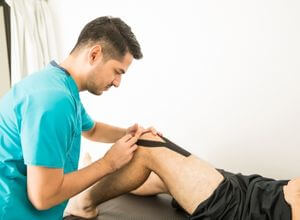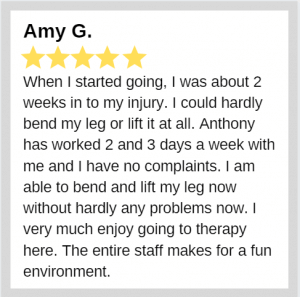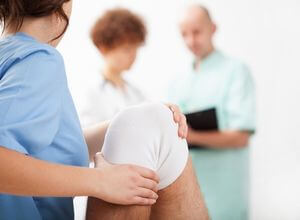Recurring pain and reduced physical function are only two examples of the many conditions that may be helped by sports and orthopedic therapy services. You may find that working with a physical therapist (PT) is the key to quickly resuming your previous level of physical fitness and independence.
Sports and orthopedic therapy services may be the most helpful and cost-effective techniques to treat and overcome many sorts of orthopedic ailments and injuries. In addition, it may lessen or perhaps prevent the eventual need for medication and surgical intervention.
As medical experts, physical therapists are trained to alleviate their patients’ discomfort using a wide range of remedial techniques, allowing them to regain or maintain their previous level of physical performance. Let’s discuss the potential benefits of sports and orthopedic therapy services and where you may go to meet with a seasoned professional.
What Are Sports And Orthopedic Therapy Services?

If you’ve been injured or have a condition affecting your musculoskeletal system, orthopedic physical therapy may help you heal. Your muscles, bones and all the connective tissue (tendons, ligaments, joints, etc.) that holds them together make up your musculoskeletal system.
Sports and orthopedic therapy services aim to improve a person’s range of motion and strength by:
- Improved flexibility
- Decreased edema and stiffness
- Strengthened muscles
- Strengthened balance and steadiness
- Reduced pain
- Proper recuperation after surgical procedures
Your ability to feel better and return to your regular activities will improve gradually as you go through treatment.
How Orthopedic Physical Therapy Differs from General Physical Therapy
Physical therapists may specialize in orthopedic care by completing a course of study. Orthopedic, gerontological, pediatric, cardiac, and neurological physical therapists all have unique areas of expertise.
Orthopedic physical therapists have extensive education and experience in treating injuries and illnesses related to the skeletal muscle and connective tissue. In most cases, they will have the most comprehensive understanding of, and access to, the most cutting-edge, specifically designed treatments for:
- Ruptured ligaments
- Damage to the bones
- Injuries from overuse (i.e., carpal tunnel, tennis elbow, etc.)
- Arthritis
- hurting joints (knees, hips, elbows, shoulders)
- Amputation of a Joint
- Amputation
- Stroke
- Orthopedic surgery
Orthopedic PTs have specialty training and certifications, but any PT may treat a patient with a physical therapy issue.
Orthopedic Physical Therapy: What to Expect
Everyone’s experiences with sports and orthopedic therapy services are varied. The physical therapist on your care team collaborates with you to develop a therapy plan tailored to your unique needs and progress.

However, therapists often use a small set of tried-and-true therapy approaches when dealing with orthopedic issues.
During your sessions, you may participate in one or more of the following physical therapy modalities:
Exercise
Exercise You may improve your health and fitness by engaging in a number of different focused strengthening, cardiovascular, stability, and flexibility activities. With regular exercise, you may enhance your strength and stamina, which will make even the most fundamental of chores easier to do.
Orthopedic Manual Physical Therapy
Mobilizing your muscles and joints is the goal of the manual therapies used in manual therapy. In order to improve your motor skills, a physical therapist may employ techniques such as massage, traction, and mobilization. Heat and cold may be used for inflammation and pain relief.
Therapeutic Technologies
Devices like electrical stimulation, ultrasound, and lasers are often utilized in physical therapy. To increase blood flow and promote healing, ultrasound employs high-frequency sound waves to produce heat.
The use of electrical stimulation, which does not cause pain, has been shown to improve nerve function, while lasers employ light energy to promote tissue healing.
Assistive Devices
If you are having trouble moving about because of physical impairments, your therapist may recommend using an assistive device such as a walker, braces, orthotics, or prosthetics. If you consult with him or her, you may learn how to utilize the tools and integrate them into your sessions.
Your therapist will also provide tests and evaluations at the start of therapy and periodically during the course of the sports and orthopedic therapy services to determine how well you are responding to the interventions.
Inpatient treatment often lasts longer than outpatient sessions, sometimes taking several hours each day. Depending on the nature of your ailment, the extent to which you engage in therapy, and the degree to which your body improves, you may need to visit your therapist for a few weeks or longer.
Why Do I Need Sports And Orthopedic Therapy Services?
Sports And Orthopedic Therapy Services As Preventive Care
Sports and orthopedic therapy services may help patients find pain relief and resume their regular activities without resorting to invasive surgical procedures. Exercises are a common part of orthopedic rehabilitation since they aid with strength, mobility, and general control. Range of motion, function, and discomfort are all aims of these stretches and moves.
Orthopedic physical therapy is a great preventative tool since it may help you heal from an injury without resorting to invasive measures like surgery, MRI scans, or medication. This results in less wasted money, time, and effort and a faster return to your regular routine.
Rehabilitative Exercises Specializing In Orthopedics For Use After Orthopedic Surgery
Sports and orthopedic therapy services can assist you in getting back on your feet after surgery if you’ve sustained an accident or sports injury. A physical therapist may assist you with pain management, increased mobility, and strengthened muscles via the use of exercises, just like preventative medicine can.
Rehabilitation After Acute Injury

The term “acute injury” refers to damage sustained by the body from a single traumatic event. An orthopedic physical therapist may aid in the recovery from injuries such as sprains, tears, and herniated discs.
Rehabilitation After Chronic Injury
A chronic injury is damage to your body over time, often caused by minor, repeated injuries to your bones, tendons, or joints due to your movement patterns. Injuries that take a long time to heal are some examples of chronic injuries.
An orthopedic physical therapist can help determine the cause of your ailment by observing your movement patterns. In addition to treating your injury, they may teach you how to move more carefully to prevent further harm.
What Types Of Treatments Are Used In Sports And Orthopedic Therapy Services?
Physical therapists that specialize in orthopedics use a wide variety of treatment modalities, exercises, assistive equipment, and patient education strategies to improve your condition.
You may benefit from these sports and orthopedic therapy services in a variety of ways, depending on your therapist’s approach.
Here are some treatments used together with sports and orthopedic therapy services.
Hot/cold Therapy
Orthopedic physical therapists use both cold treatment (cryotherapy) and heat therapy (thermotherapy) to alleviate musculoskeletal discomfort and inflammation.
Exercise Therapy
Your therapist will design an exercise program that may focus on improving strength, mobility, or balance.
It is recommended that you execute the exercises alongside your therapist at first to ensure proper form. You will be taught the exercises and then given the go-ahead to do them on your own time to increase your strength and range of motion.
Traction
Joints may recover from compression or injury with the help of traction. It may be done using either specialized equipment or the therapist’s hands and is thought to be beneficial for those who suffer from:
- discomfort in the neck
- the discomfort felt in one’s lower back
- spinal degenerative disc disease
Hydrotherapy
Your treatment plan may include water therapy if your therapist thinks it would help. As part of your recovery, you may use a swimming pool or whirlpool for therapeutic activities.
Water’s moderate resistance makes this sort of treatment ideal for anyone with joint problems or injuries. Due to the buoyancy effect of water, the stress on your joints is lessened when you work out.
Soft Tissue Manipulation

When a physical therapist performs soft tissue manipulation on your muscles, ligaments, and fascia, they are using manual physical therapy procedures. Adhesions are broken, and muscle performance is enhanced as a result.
Soft tissue manipulation is often advised as a means to alleviate pain and relax muscles, while further study is required to confirm its precise benefits.
Joint Mobilization
Joint mobilization includes a therapist making a controlled yet strong motion in the direction of treatment. It’s a hands-on approach, much like manipulating soft tissues.
Dry Needling
Dry needling is a method used by physical therapists that is comparable to acupuncture and is legal in certain jurisdictions.
The therapist inserts a small needle into the trigger point of a certain muscle, which is frequently the cause of tension or discomfort.
Laser Or Light Therapy
Orthopedic physical therapists may use low-level laser or light therapy to improve muscular function, lessen muscle fatigue, and facilitate muscle healing after injury.
Kinesiology Taping
Kinesiology tape is a stretchy cloth band that may be molded to the body in a variety of ways. This therapeutic tape, available in a variety of eye-catching colors and designs, is placed to trouble spots on the body to alleviate pain and improve mobility.
Choosing An Orthopedic Physical Therapy Practice
Insurance and proximity to your home may be two of the most important considerations when deciding where to go for orthopedic rehabilitation. You might benefit from staying somewhere near to home that is accessible via your service.
Modern equipment and successful treatment results are two more criteria to consider when choosing an orthopedic rehabilitation clinic. Narrow down your options by identifying the characteristics that are most essential to you, and if possible, attempt to arrange a meeting with your chosen facility.
